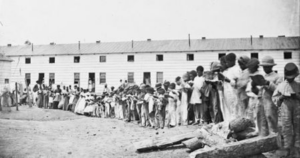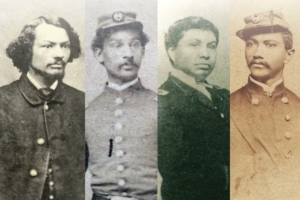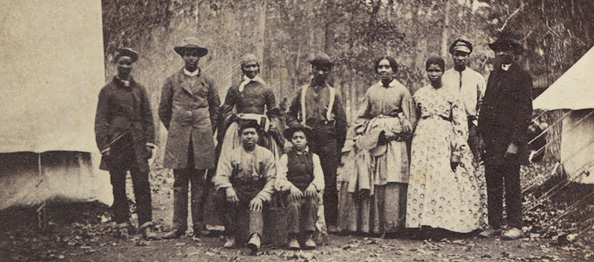There is a very small demographic of people who historians often neglect to mention when talking about the Civil War, that is, the African American surgeons who served in the US military. Due to extreme prejudice at the time, it was very difficult to find schools in America that would allow them to enroll, let alone obtain medical degrees. However, even if they were accepted into a medical school, they were not given the quality of an education as their white counterparts. By the end of the Civil War, there were only 23 African Americans who had graduated from Medical Schools in the United States.
Obtaining the degree was only half of the battle, though. When the Civil War broke out in 1861, African Americans came from all over the United States to offer their services to the Union Army. However, the American government was hesitant to allow African Americans to enlist and even more hesitant to put them into positions of power and authority, such as giving them a commission. The newly formed United States Colored Troops regiments lived in horrible conditions, with the quality and quantity of supplies significantly worse than that given to the white regiments. As a result, the need for medical professionals in these regiments was dire. However, it was difficult to find white surgeons who would be willing to serve the black regiments, so the War Department was eventually forced to appoint black surgeons to the regiments. By the end of the Civil War, 3 African American physicians were commissioned as officers. These physicians were not given the same protections, pay, or respect as their white counterparts. But still, they served valiantly and proudly.
A contraband camp during the Civil War:

While it was difficult for black surgeons to obtain commissioned positions within the army, many of those who had medical degrees would come on as volunteer surgeons for the army, 10 out of the 13 African American physicians who served the Union Army during the war came on as contract surgeons, some of them going unpaid for their service. They were more than willing to serve the United States Colored Troops and the Union Army, supplying aid in hospitals and helping to recruit others for the regiments. They also worked in various Freedmen Hospitals, giving aid to those who had escaped slavery. They would use their positions, commissioned and non-commissioned, to advance equality for black troops, campaigning for equal pay and treatment of black soldiers. They would also use their intellect to support abolition, becoming spokespersons for the movement. Many of them would also help those who were escaping slavery through the Underground Railroad. Following the war, many surgeons would go on to do further work for the black community, opening up private practices, founding medical schools, and running civilian hospitals. Despite all the odds that were against them, black surgeons proved to be vital to the Civil War, seeing as the war would not have been won without the help of the United States Colored Troops. Their accomplishments broke barriers for African Americans not just within the military but in the medical field, opening the door for countless other black medical professionals who would come after them.
Some black Civil War surgeons (Left to right): William Powell, Dr. Anderson Abbot, Dr. John Rapier, Dr. Alexander T. Augusta.

Blog Written: Danielle Shults (Tunnel Hill Staffer)





